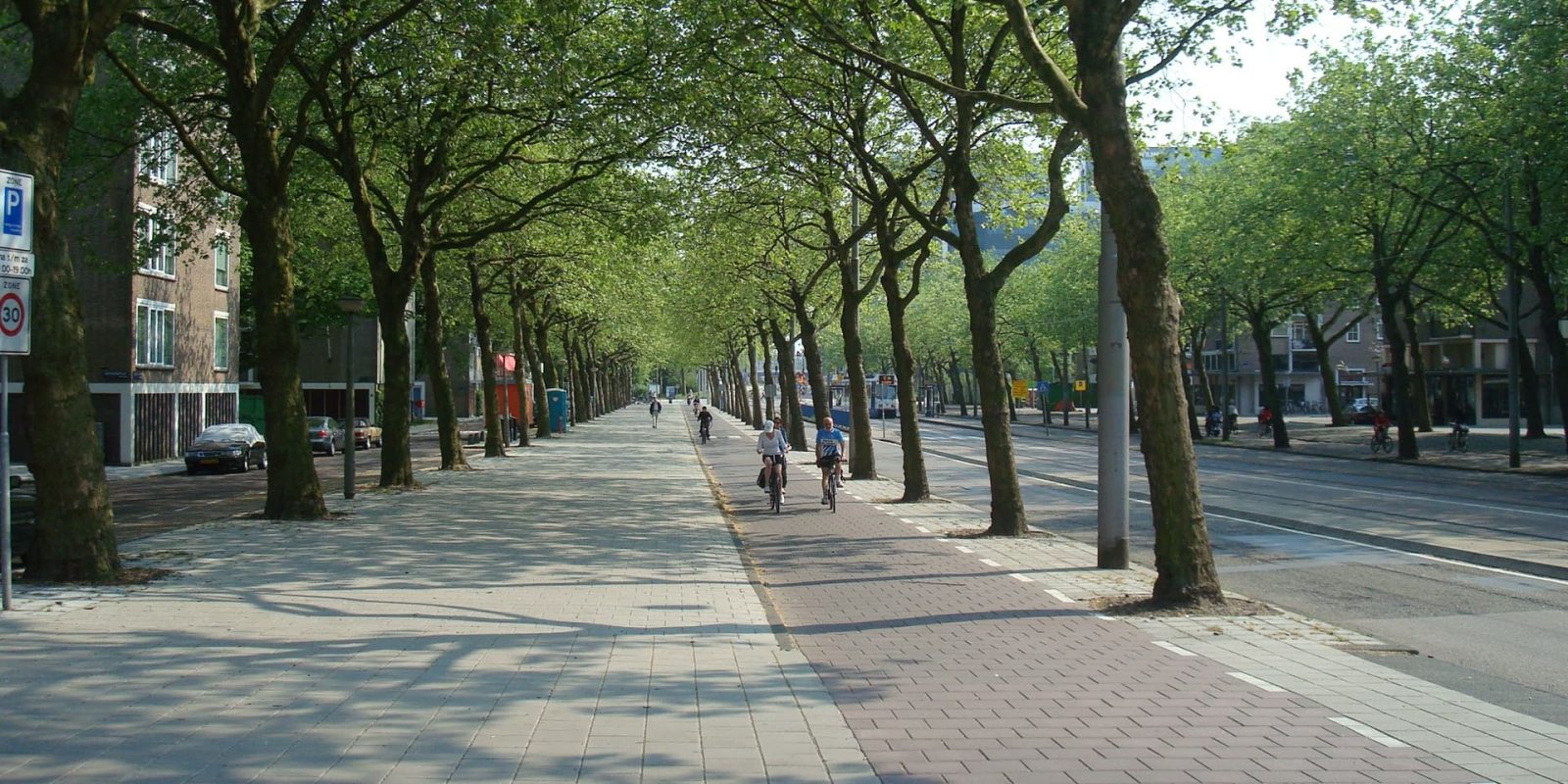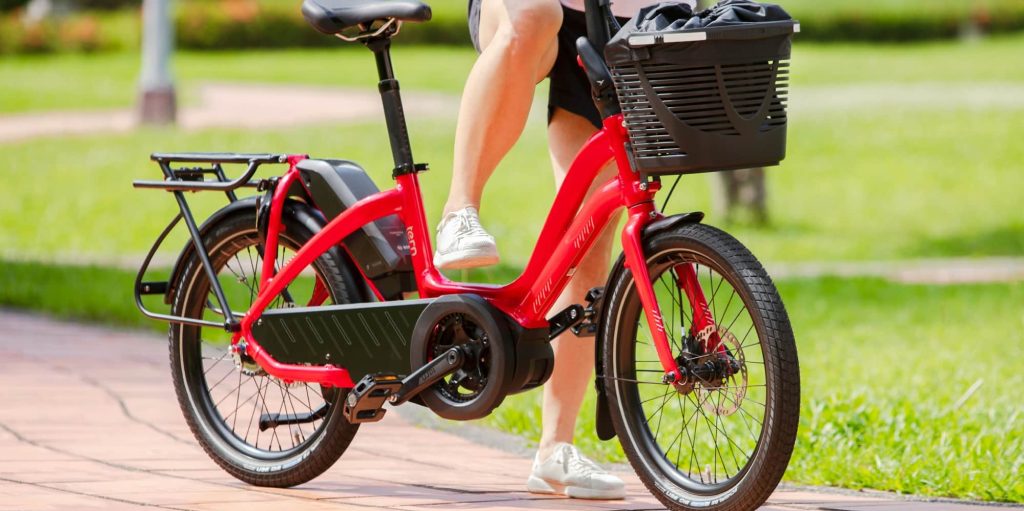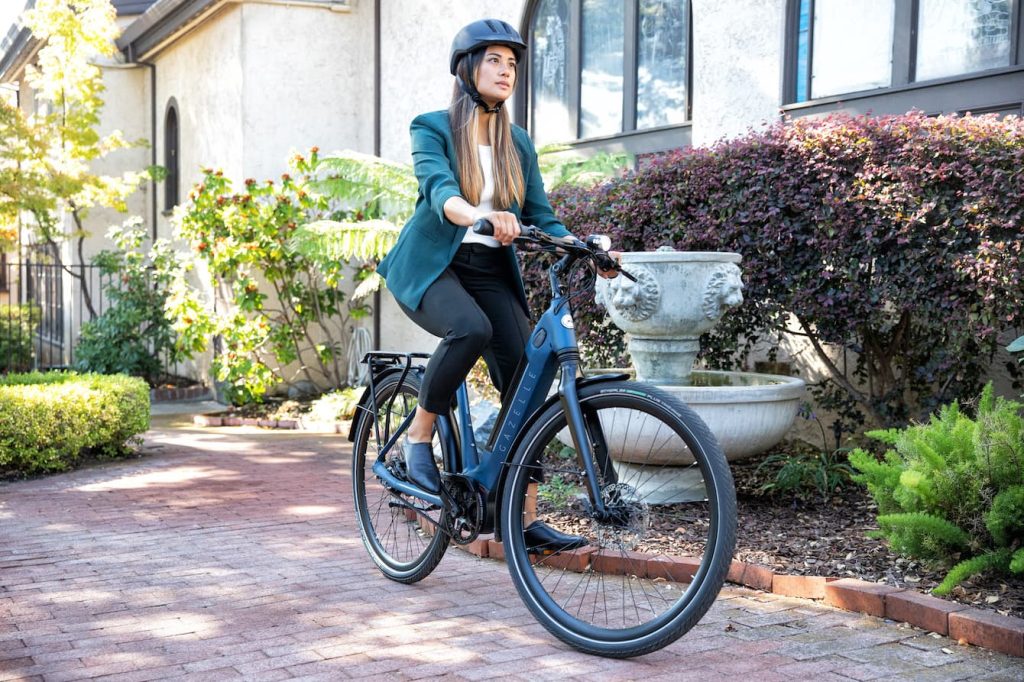
If you thought most Europeans had it bad with lower e-bike speed limits of just 25 km/h (15 mph), then prepare yourself for even tighter restrictions in one European capital. That’s because Amsterdam’s city officials are proposing to reduce the electric bike speed limit on cycle paths to just 20 km/h (12 mph).
According to a letter to the city council from city transportation chief Melanie Van Der Horst regarding the subject of electric bike speed limits, many e-bikes traveling on the city’s vast cycling path network are said to reach speeds of 30 km/h (18 mph) or higher. The letter explained that the vast range of different speeds from slower non-electric bikes to faster electric bikes can be dangerous to kids and elderly riders on the cycling paths.
According to Dutch News, in order to create the reduced speed limit for e-bikes, a national law would need to be passed.
In the meantime, the city is trying to encourage faster electric bike riders to stick to the roads instead of cycling paths. They are also exploring the use of smart apps that can notify cyclists when they enter lower speed zones.

The issue of fast e-bikes may be uniquely important in Amsterdam, often seen as the cycling capital of the world. According to Road.cc, two thirds of daily transportation trips in the city are performed by bike.
Around 50% of bicycles sold in the city are electric, meaning e-bikes and non-electric bikes constantly mix on the cycling paths.
European electric bicycle laws don’t permit manufacturers to allow e-bikes to travel at over 25 km/h (15 mph) assisted. After hitting that speed, the motor must cut out and any additional speed is only obtainable under pedal power alone. However, non-compliant e-bikes that can exceed the established European e-bike standards can still be found.
Some electric bicycles that come programmed with EU-legal speed limits can also be modified to travel faster, though manufacturers and regulators have attempted to put an end to this practice of e-bike hot-rodding.

Electrek’s Take
The balance of speed and efficiency is tricky, especially in a place like Amsterdam where two-wheeled traffic can outnumber four-wheeled traffic. Faster e-bikes are often preferred because they reduce travel time and thus are more effective. But faster e-bike speeds can sometimes come at the cost of safety when cycling paths are already crowded.
However, I’m not sure that targeting e-bikes is the best way to handle it, especially when pedal bikes often ride faster. This is especially true in Europe, where the lower 25 km/h (15 mph) speed limit on e-bikes already means that many pedal cyclists pass by e-bikes in the cycling lanes.
Top comment by Christian Zierleyn
I live in Amsterdam and the thing is that we have such a crazy amount of bikes on the road that it is starting to get dangerous on the bicycle path. On certain transit routes for bikes you have hundreds of bikes per minute during rush hour and that makes the difference in speed a real security problem. Also, there still are a lot of roads where the bicycle path is still relatively narrow, too narrow for the amount of traffic. Amsterdam is working on this and they are transforming whole roads to bicycle roads and closing them for cars. But that is not possible everywhere. So I would be in favor of limiting speed on those narrow bicycle paths, but not per se on the broad bicycle roads.
Instead, it seems like a system that treats cycle path users like road users makes more sense. Creating a speed limit that is posted on the bike lane and then ticketing anyone who exceeds it or otherwise rides dangerously would seem sensible to me. It would allow e-bikes to be capable of higher speeds, which is useful when on the open road, but would ensure that people only use those speeds where safe and appropriate.
Of course that would require more manpower in the form of increased traffic cops. But if the issue here is safety, and if you’re playing with the kind of tax money that European countries get to enjoy, then it seems worth it to me.
But hey, they don’t ask me for my opinion on Dutch cycling laws. Nor should they.

FTC: We use income earning auto affiliate links. More.




Comments